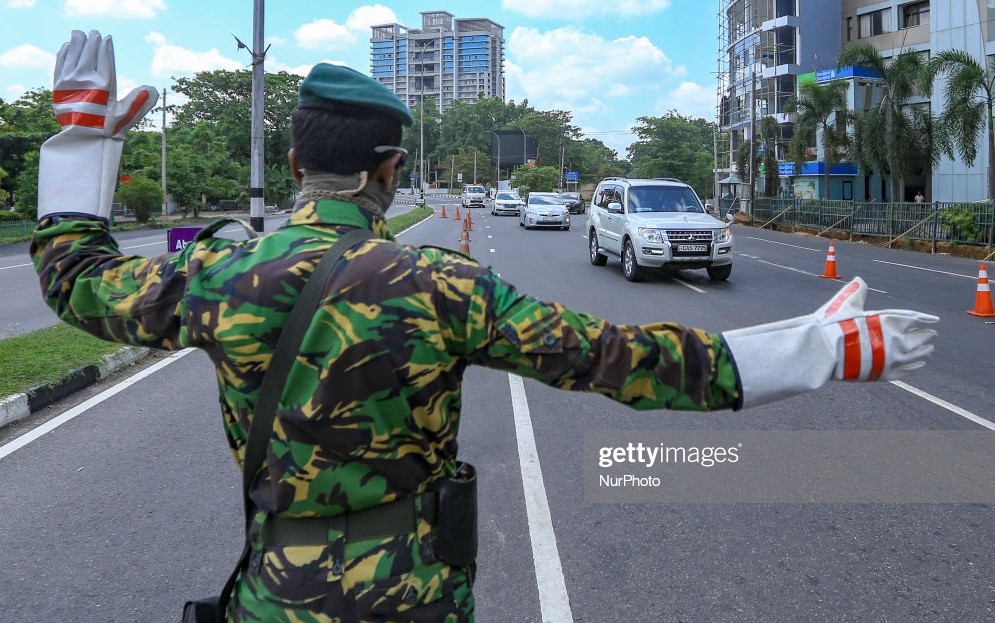On the 13th October, the Sri Lankan Attorney General announced that the state would not press charges against former navy chief Wasantha Karannagoda, who stood accused of complicity in the abduction and murder of teenagers to extort money during the waning years of Sri Lanka’s barbaric civil war between government forces and the insurgent Tamil Tigers, according to Al Jazeera.
Amnesty International’s Asia Pacific director Yamini Mishra said the following: “This case has already been beset by obstacles in the Sri Lankan courts, and today’s decision pushes justice further out of reach for the families of victims.” As Just Security reported, hundreds of Tamil women have marched through the streets of northern Sri Lanka since 2017 to protest endemic military secrecy and impunity. This acquittal marks another setback in their mission to find out what really happened to the 100,000 people abducted during the civil war.
It is crucial that the international community sever all diplomatic and economic ties with the Sri Lankan army and navy. The Rajapaksa regime must be pressured into disclosing any information about persons involved in or responsible for wartime disappearances. Phil Miller, a researcher for International Human Rights, Association Bremen, thoroughly documented the British State’s use of mercenaries and Northern Irish policemen to train Sri Lanka’s ruthless Special Task Force. Police Scotland also participates in training exercises with Sri Lankan police, according to The Sunday Post. Westminster and Holyrood should set an example and immediately cut off these partnerships with Sri Lanka.
A systemic lack of accountability, as linguist Muditha Perera demonstrated, is inextricably linked to the militarisation of Sri Lankan society. Decades of conflict, coupled with daily media reports describing extrajudicial murders and bomb threats, have so traumatised the public that they became accustomed to a pervasive military presence in everyday life. The Rajapaksa regime deploys army personnel in the tourist industry, urban development, and construction work. Military staff maintain Colombo’s roads, streets, or parks and evict poor communities to make way for “beautification” projects. Soldiers run hotels in northern and eastern provinces. Troops even guard Buddhist temples and other historical sites. The Adayaalam Centre for Policy Research revealed that one district contained almost one soldier for every two civilians.
This normalisation of militarism bred a culture of impunity in the army, police, intelligence services, and state-backed Buddhist extremists. The International Truth and Justice Project found evidence that Sri Lankan security forces regularly torture and harass Tamil civil rights activists. A United States Holocaust Memorial report alleges that survivors of anti-Muslim riots saw Special Task Force agents do nothing to stop rampaging mobs. The Defence Ministry routinely threatens journalists for calling out political nepotism or corruption as well. Dissidents and journalists who defy intimidation risk being “white-vanned” (kidnapped in a white van and held to ransom) by paramilitaries, according to Dawn News.
Disturbingly, President Gotobaya Rajapaksa has largely fulfilled his promise to shield loyal military and police personnel from the rule of law. In January 2020, he established a “Commission of Enquiry” designed to discredit or slander prosecutors and honest policemen investigating high-profile civil-war crime cases. Thanks to the Enquiry’s shamelessly illegal interventions, suspects like Admiral Karannagoda will probably never see another day in court, according to The Wire.
Dr Thusiyan Nandakumar laments that military officials guilty of countless human rights violations are spearheading Colombo’s coronavirus response. In February 2020, PM Mahinda Rajapaksa, who was president when the army massacred tens of thousands of civilians during the civil war’s final act, pulled Sri Lanka out of a UN resolution investigating war crimes, according to Al Jazeera. A month later, the government elected Shavendra Silva as head of the COVID-19 task-force. Silva allegedly ordered the execution of surrendering Tamils in 2009. His appointment heightened ethnic polarisation and deepened mistrust towards Colombo’s pandemic strategy. Epidemiologists warned the Tamil Guardian that quarantine centres are strictly imposed on the Tamil-inhabited north, while southern Sinhalese regions endure fewer restrictions.
Unrepentant war criminals are tearing Sri Lanka apart. A rigorous judicial vetting process, preferably implemented with international oversight as recommended by Human Rights at Harvard Law, could prevent the likes of Silva or the Rajapaksas from gaining power again.There will be no sustainable peace in Sri Lanka until justice is served.
